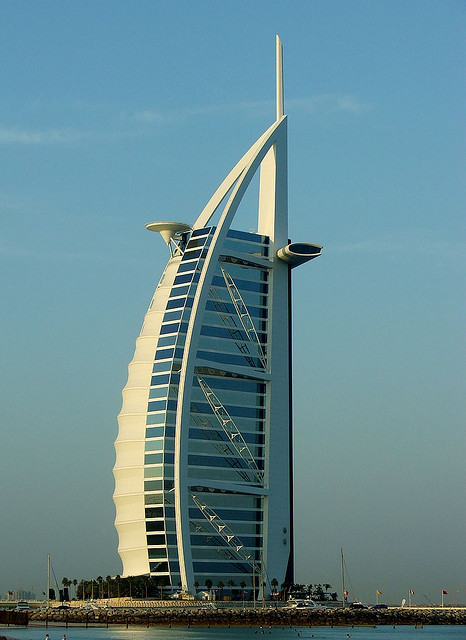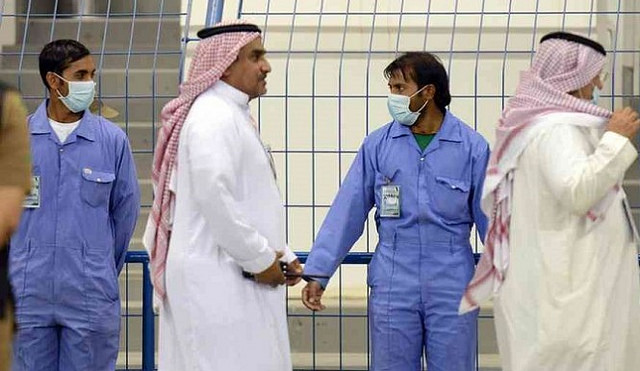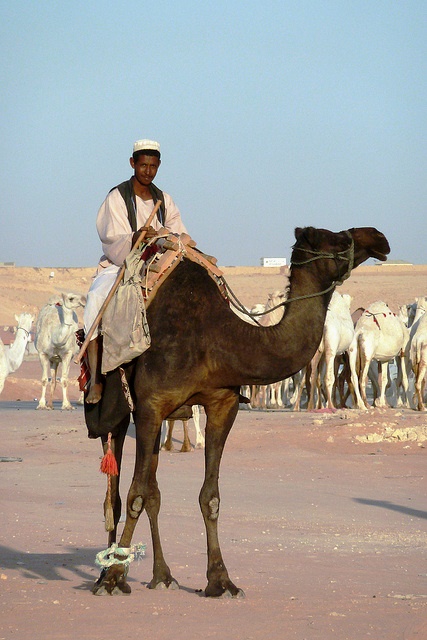Vinita Tiwari, Middle East CorrespondentLast Modified: 05:09 p.m. DST, 29 May 2014

A recent survey done by one of the globally recognized auditors, Price Waterhouse Coopers (PwC) revealed that Dubai has been honorably named as the ‘City of Opportunity’. The emirate has left behind a lot of economically strong countries in the race; emerging as one of the flourishing employment producing cities.
Sweeping off the accolades and awards on a global platform was never easy for an Arab federation that was strangling in the ropes of tradition and orthodox perspectives; a couple of years ago. Let us explore and know the history and what led to the huge success of Dubai from different aspects.
History of Dubai: A Time-Line Reflecting the Rise & Fall of the City
Dubai dons the image of an economically powerful Arab federation and an employment powerhouse that encapsulates opportunities not only for nationals but for millions of expats as well. But the situation was never this favorable and Dubai has risen from the ashes, in a true sense. Let us analyze the Dubai’s history, year-wise:
- 1930-1940 (The ‘Dark’ Decade):
Long before, when the wealth-generating oil & gas fields were not explored; it was the Pearling industry that flourished in the corners of the UAE, especially Dubai. During this tenure itself, recession destroyed everything and the booming Pearl industry dipped in no time. The sudden fall created a lot of social pressures and there were scenarios of disputes amongst the royals.
- 1958-1968 (The ‘Bounce-Back’ Decade)
It was in the year 1958 that Sheikh Rashid officially became the ruler of Dubai and started building relations and directing initiatives towards revamping the economy of Dubai. The initiatives were for re-branding the image of the city and making it a major trading hub. After a couple of years, the city discovered its own oil field. This attracted a lot of traders and thereby after a long time, Dubai saw economic growth. As the decade ended, Dubai was already exporting crude oil and generating revenues.
- 1990-2006 (The ‘Fortunate’ Decade)
Dubai was now fast emerging as a wealth and job generating machine sort of country. By the end of 1990, there were political upturns as Sheik Maktoum, the new ruler of Dubai paved way for organizing Dubai shopping festival and the Dubai World Cup. Moreover, in this time period only, Burj Al Arab came into existence. By 2003, Dubai got recognition from the International Monetary Fund and the World Bank, as a financial hub. All these major political happenings led to the economic success of Dubai.
- 2006-Till Date (The Never-Ending Success)
Dubai has now become one of the top tourist destinations and placed itself ahead of all the powerful job markets and economies.
Other than economy and revenues, Dubai has come a long way in shedding its conservative image and rolling out as a country that welcomes people from different cultures and backgrounds. This is no less than a sign of a powerful country. Let us explore this aspect as well.
1 2 Next Page »
Published: 29 May 2014
(Page 2 of 2)
History of Dubai: Ruling Out the Social & Cultural Barriers
Times have changed and so is the thought process. Owing to a strong economy and a high per capita income, Dubai manages to attract a good number of migrating job seekers every quarter. So, it can be clearly said that the flourishing city of the UAE has a mixed populace in terms of religion, caste and creed. The expats have reported a healthy lifestyle and this proves that the federation has left behind the age-old cultural stigmas that marred the success earlier.
The above discussion shares some of the facts that reveal the arduous journey that Dubai has covered from being a small city to what it is today. If people are regarding the city as fortunate, then there are reasons behind it. Let us unfold the current fiscal and job market scenarios of Dubai.
Dubai: A City of Booming Economy & a Ripple-Creating Job Market
Dubai has come a long way in creating the stature that it maintains today. The economic evolution and extermination of tightening cultural yardsticks has resulted into a city that is flourishing and raining jobs in almost all the sectors. There are certain government initiatives that have been taken to bring in revenues and make Dubai’s economy stronger. Here are some of them:
- Government initiatives directed towards bringing in economic diversification
- Foreign trade has proved to be a major contributor in boosting the economy
- Initiatives to promote jobs in service industry-Finance & Trade sectors in the city of Dubai
- There are initiatives strategized by government bodies in Dubai that aim to offer employees a better and secured workplace. This has actually attracted a lot of countries to partner with Dubai and create jobs for people.
All these factors and ventures have helped in developing Dubai in becoming one of the economically strong cities and a job market to ‘die-for’. Well, Dubai has acquired the status of being a land of opportunity, then there are ought to be some more reasons that supports the fact. Well, there are certain upcoming events that will even elevate the success rates. Here is a snapshot of the foreseen fortunate events:
Dubai: Upcoming Fiscal-Boosting Happenings
- World Expo Bid Win 2020
Dubai will be hosting the next World Expo Bid that will witness countries from different parts of the world participating and displaying job opportunities in different sectors. Some of the mobility and Oil & Gas related issues will also be addressed in the exposition. The event is expected to create millions of jobs across sectors. The economy is expected to be boosted by a whopping $24.2bn.
- Launch of World Free Zones Organization
Dated May 19, 2014, the World Free Zones Organization (World FZO) unveils in the city of Dubai. The organization is a non-profit entity that will operate for all free zones around the world and is set to transform the way in which world economy operates.
Not only fortunate for working lot, Dubai has also proved its worth for the business group as well. Dubai is a favorable place for all the working people owing to booming fiscal situation, high per capita income and a tax-free working zone.
A ‘City of Opportunity’ in True Sense
Dubai has come a long way to reach a place where it is now and has also shed its image of being a culturally narrow federation. The fierce combination of low corporate tax rates, affordable cost of living and quality of life are some of the defining factors of Dubai. The city is not only a favorable land for emiratis but also an excellent employment destination for expats as well. With all these factors combined together, Dubai has emerged as a winner in true sense.
Return to Page 1 »
Follow Vinita on Twitter
Twitter: @nahmias_report
Middle East Correspondent: @vinita1204







































